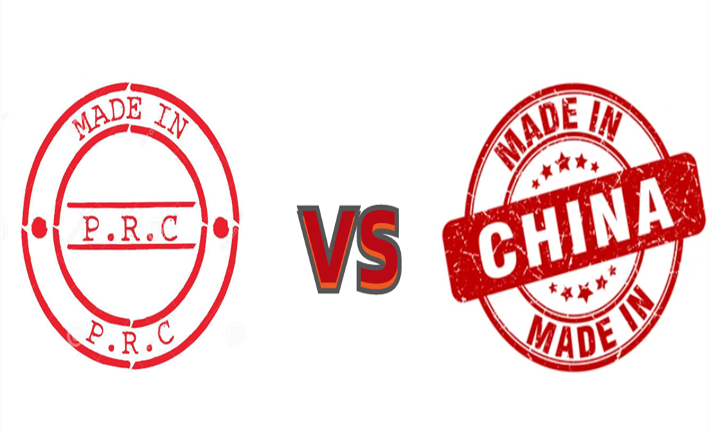China’s trade history and its leading philosophies
China’s values and history affect how they work and do business daily. An overview of China’s long history and the deep-rooted fundamentals of civilisation is presented in this article, as well as an overview of China’s trade history. I’ll try to give you some basic understanding of why Chinese work and do business as they do and why these fundamentals won’t likely change quickly.
The founding philosophies of China’s civilisation
China is one of the oldest civilisations in the world. The Chinese themselves speak about their 5000 years of history.1. It is difficult to determine how old Chinese civilisation really is. It can be said that the Chinese civilisation and its value set began with the ancient philosophies. These philosophies stem from around 2500 years ago. From then on, China’s values served as the foundation for civilisation and the protection of its citizens. Throughout history, the people of China have always been able to rely on these core values of the civilisation. China’s culture has been inward-focused for its entire history. Throughout history, internal issues and problems have been handled according to their core values.
The Chinese way of thinking has caused much incomprehension in the West in the recent 200 years. This has led to wars and trade disputes. The concept that the Chinese counterpart will always work with their values as non-negotiable and their cautiousness to protect these values should be understood and accepted when doing business in China.
China has never accepted and will not accept much influence and values from other cultures, as these are seen as a threat to China’s collective civilisation.
China has undergone constant change throughout the entire history of its civilisation. There were periods of war and periods of peace and periods of cultural and economic development and trade and other periods of closing all borders and complete isolation. There were periods of long-running dynasties, and periods of corruption and the fall of empires. But society’s core values have remained mainly intact throughout all these periods.
The ancient leading Chinese philosophies that still strongly influence society, morality and Chinese leadership and management styles today all stem from 2000-2500 years ago. Many philosophers sought ways to bring order and morality to society during this time. The philosophies that still have the most influence on China and its business and management systems today are Confucianism by the philosopher Kong Zi and his students, Daoism by the leading philosopher Lao Zi and Legalism by its leading philosopher Han Fei Zi. Later, Buddhism, would also play a significant role in the Chinese school of thinking.
Philosophies over time
Over time, the influence of each of these philosophies has changed continuously. There have been dynasties that put more emphasis on one philosophy or times when more emphasis was placed on another. The central values of these philosophies have been present throughout Chinese history. The philosophies are not seen as contradictory but complementary, allowing them to coexist.
The central philosophies still play a significant role in today’s China. All students in Chinese schools still study the poems and writings of the philosophers and followers of the philosophers. Students are used to receiving moral lessons in almost every text they read in their Chinese textbooks at school. It’s a difference in educational style in my eyes: In China, much more focus is laid on teaching morality, responsibility and respect (process- and relationship-oriented), core values of China’s society, whereas the emphasis in Western education is more on numbers, facts and results (results-oriented).
Recently, other ideologies have also gained influence in China, especially Marxism, nationalism and Western capitalism. Many Chinese policymaking, management styles and societal thinking can be explained by combining or mixing all these philosophies and ideologies.
Confucianism
The oldest and most influential of the philosophies is Confucianism. Its focus is on bringing peace and justice to a collectivist-based society. The stronger the collective structures and their inner connections (guan xi/关系) are, the stronger the community will be. It believes that society will reach stability when everyone in social collectives understands their role in the hierarchy. Kong Zi believed in strict role patterns within collectives, such as schools, companies, the nation and most significant of all the family. The husband’s rank is above the wife, older people above the younger people, (grand) parents above their (grand) children, teachers above students, brothers above sisters, company bosses/managers above employees, the service receiver above the service provider and the Emperor above all its citizens.
People lower in rank are expected to obey, respect and obliterate themselves. They are supposed to study or work hard for the collective and save the reputation (mian zi/ 面子) of the people higher in the hierarchy. The role of people more elevated in the order is to protect and provide for the collective as a whole. The collective (family, company or government) again serves the individual in their personal development. The individual, therefore, puts much trust in the collective entity. Collectivism and hierarchical structures are still evident today in China and Chinese communities.
Characteristics of Confucianism
Some of the characteristics that come forth from Confucianism that you will see in Chinese businesses and that you will deal with when doing business in China are:
- Chinese employees, on average, have a strong work ethic. They work for a collective (the company or more likely to provide for the family). Employees are willing to go the extra mile for you when this is expected by the collective. They often have no problem working overtime to overcome challenges or delivering their goods on time when it serves a higher purpose of collective values.
- The Chinese management system is hierarchical and authoritarian: Decisions are made by higher-ranked staff. Expect to get less creativity, decision-making, or thinking along from lower-ranked team members. Lower-level staff often tries to avoid responsibility. Knowing who you are talking to and what position this person has in the company is needed to move things forward.
- Relationship building (关系) and giving reputation (面子) are essential parts of doing business in China. The entire Chinese society is built on collectives with internal solid relationships. Therefore building trust and relationships will be vital to get things done in China. Much more than this is necessary in the West. Your Chinese business partner will respect you much more when you have first built a close relationship, they will be more transparent, and you will get more done. Being particular about how to give your business partner “face” and how not to (publicly) embarrass him is very important as well.
Daoism
Daoism is another leading philosophy of the same time era. Its main focus of Daoism is morality and harmony with nature. Daoism is a complicated philosophy and is difficult to explain in short. One of its visible focuses is the long-term natural development of things. From a societal perspective, there is a belief in evolution, not revolution. Long-term ideals or values can be set out for an individual, collective or society while focusing on step-by-step progress towards the end goal. Patience and adaptability are essential values that come from this. In modern policymaking, the Communist Party sets long-term goals (2049 or even 2121). The short-term route towards the goals, however, constantly changes. The same style of management can be seen in many companies as well.
A Daoist concept famous in the West is Yin and Yang, which literally means shadow and brightness. It is the concept that between 2 extremes, balance constantly needs to be found. China is a cyclical society where two extremes can exist next to each other or alternately exist. Some examples of these are:
- There were periods in time when China completely isolated itself from the world. There were also periods when international trade flourished, and people were curious about foreign cultures.
- China was a communist state where all land and enterprises were state-owned until 1976. After 1978 it became a country where the State incentivised private ownership and entrepreneurship. Gaining personal wealth was seen as a virtue.
- More recently, China changed its policy of complete and rigid control over Coronavirus to completely letting it go and letting it spread.
All can be explained by cyclical waves in the search for a balance towards a good result for the entire collective in the long term that will eventually serve the individual.
Daoism in today’s business
Some of the characteristics that come forth from Daoism that you will see in Chinese businesses and that you will deal with when doing business in China are
- Chinese prefer ambiguity in contracts and agreements. They like to leave space for pragmatism and new negotiations if circumstances change. There is a preference for multi-interpretable contract terms depending on the circumstances. Chinese see contracts and agreements more as a starting point for cooperation than as a document with solid legal and definite value. A mistake many Western people make in China is that they are unaware of these expectations towards contracts.
- In negotiations, the Chinese always aim for harmony and win-win situations: When negotiating in China, it is wise to remember that the other party must have something to win. During the negotiation process, the Chinese will always produce a good result for themselves and want to show they got a “win” out of negotiations. Still, they also wish for the other party to feel their “win” by assuming what the other party wants and trying to convince the other party for their benefit. If problems arise or people make mistakes, the Chinese aim to solve the problem in harmony. Both parties should take some gain or loss. This contrasts with problem-solving in the West, in which the first response is to determine who is (morally or legally) right.
The two above traits create a business culture in which everything is negotiable. Contracts and earlier agreements play an unpredictable role. Because of this culture, the Chinese are generally skilled negotiators and use many tricks you may need to know. Negotiating is something that the Chinese have done for their entire lives. They have negotiated with their parents, with their teachers and now with their business partners. Negotiation and problem-solving in China can be dynamic, strategic, and creative. Choose your strategy wisely and make it work to your advantage.
Legalism
Legalism is a philosophy to deal with situations in which people cannot easily trust each other within the collective. Therefore, strict rules and laws with clear rewards and punishments are necessary to get the intended result for the collective.
In the recent decennia, a large population in China moved to cities and came to live, work and form communities with people from all different parts of China. People needed to find ways to cooperate with people they naturally would not trust. A legalist management style can be found in many conservative Chinese companies and institutions, especially those dealing with low-educated and often migrant workers and staff. Factories are an excellent example of these kinds of companies. The extrinsic motivation of “carrots and sticks” is used as a motivator. Examples are providing bonuses for performance or payment per piece produced.
Legalist values are also prevalent in education and government. In schools, there is constant pressure to study and pass exams. Lots of weight is put on certificates and diplomas. Within the system of the government and the Communist Party, this system of exams, rewards and punishments based on behaviour is also very common.
Legalism in today’s business
In more innovative companies nowadays, the legalist management style is losing popularity and management styles based on trust. Intrinsic motivation and stimulation of creativity are coming up, more on the principles of Daoism. But legalist values still play a dominant role in the majority of companies.
- Successfully managing Chinese workers means working with external motivations. Many Western managers have been disappointed when they thought they had invested in their workers or staff and built a relationship with them, only to lose them to a competitor willing to pay slightly more. A (foreign) customer or company in a city far from the workers’ hometowns is not regarded as a collective to that one should be loyal. Different from the West, where internal motivations are often critical drivers in companies, in China, the primary way to ensure that people work for you is by ensuring that they have strong external incentives and are well paid for all contributions they make.
Buddhism
The values of Buddhism have a substantial impact on the Chinese people as well. Philosophies like Confucianism and Daoism focus more on morality and the Earth. These philosophies are atheist in nature. Buddhism offers a more spiritual path based on personal conscience and compassion. Praying to the gods for safety and wealth is also part of the more religious side of Buddhism. Philosophies like Confucianism and Daoism can’t provide this.
Buddhism’s central values of harmony, pragmatism, and adaptability are compatible with China’s other influential philosophies. Another core value in Buddhism is life, which always needs to be protected. The value of life could be seen in China’s Covid policy, one of the world’s most protective policies, placing people’s lives first.
Buddhist spirituality consists of a movement or a swinging back of the pendulum between extremes and the search for the fundamental Buddhist value of the middle path. Improvement in the quality of living, the formation of a broad middle class, and the formalisation of an open policy towards capitalism are all influenced by Buddhist values.
Buddhism in China lost some influence during the Cultural Revolution (1966-1976). During these times, Buddhist leaders were prosecuted and many temples were destroyed in Mainland China. In Mainland China, Buddhism mainly functions as personal gratification for people searching for spirituality. Buddhism often plays a more significant role in Chinese communities in other areas of Asia outside of Mainland China. It is an integral part of the culture in, for example, Taiwan, Hong Kong, and Malaysia.
China’s trade history and the Silk route
In economic and trade terms, China has been an enormous player worldwide for much of its history. China’s trade history developed the Silk Road to trade with the Indians, the Turkish, Roman Empires and the Arab nations around 200 BC. The silk road was a network of land routes between the Far East to Europe and the Middle East, used by traders for over 1.500 years. Many influences, especially the remnants of Arab traders who set up infrastructure and mingled with the local Chinese communities, are still seen in northwest China today, dating from China’s trade history. Towns along the route grew into multicultural cities. The exchange of information gave rise to new technologies and innovations that would change the world.
China’s history of exploring the world for it’s trade
In most of China’s trade history, it didn’t actively seek trade but rather let traders come to them. Only in one period of time, the Chinese went out on their own. This was a time period between 1405-1433, during the Ming Dynasty. Emperor Zheng He built an extensive fleet that in size would not be surpassed until World War I.
During this period, his militarised fleet undertook many trade expeditions with boats that were unthinkable of building in the west. The fleet participated in trade in South-East Asia, India, Persia and even East Africa.
China’s history of closing the borders for trade
In 1433, however, the Emperor decided to stop all expeditions from that moment and even banned foreign trade and the import of foreign influences into the country altogether. The money used for building the fleet in the past was now spent on building the Great Wall. It was intended to protect the Empire from the Mongols in the north and isolate the country from the outside world. It is a clear example in China’s trade history of when China can shift from an open society to an entirely isolated one.
In the 16th century, foreign trade resumed again via maritime routes. European trading companies came to Asia in the 16th, 17th and 18th centuries for precious goods. They travelled to China to buy some of China’s most precious resources, such as silk, porcelain and tea. The Europeans also brought new goods, like crops, to China, especially potatoes and peanuts. The cultivation of these crops allowed the population of China to double during the early 18th century.
Though domestic trade moved in all directions, foreign exchange was pretty one-sided at this time in China’s trade history. China had an incredibly favourable trade balance with Western countries, exporting way more than it imported. The balance was equalised by paying in European silver. Silver was a precious metal that the Chinese didn’t have and needed to produce their own money for domestic and inter-Asian trade. Europe-China trade increased over time as the bourgeois in Europe enjoyed bragging their wealth by owning luxury goods from China.
Conflicts with the West over trade
The ruling Qing Dynasty in China kept a conservative stance towards trade in the 18th and 19th centuries, concerned about too rapid changes brought on by foreign influence. This led to misunderstandings of China’s trade position by Western powers, especially in the 19th century. Various Western colonisation efforts occurred in China due to this during what is now called the “century of humiliation”. However, China has always been defensive about internal values until now and will most likely stay like this.
Throughout history, foreign trade had brought prosperity to various dynasties in China when foreign trade was accepted to increase the population’s wealth. China has an inward-looking culture, which always first assumes the strengths of its values. The different Dynasties have always avoided too much foreign influence throughout China’s trade history. Whenever foreign power threatened the culture, China would close its gates and ban or limit foreign trade.
It is helpful for people doing business in China today to understand the Chinese’s defensive approach to their values. Avoiding sensitive “internal” issues is usually wise when talking to your business partner. Acceptance of the Chinese way of working and their way of doing business will be highly appreciated. The Chinese don’t expect you to do it their way, but they expect you to respect them and let them do it their way.





